Oil and gas value drop as production levels increase
- Published
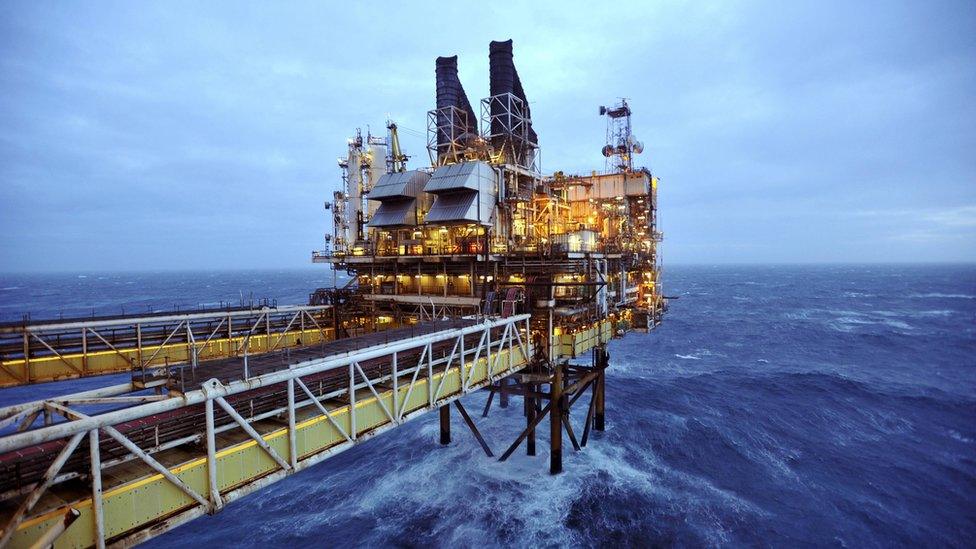
The value of oil and gas produced in Scotland fell to its lowest level since 1999, despite an increase in production.
Scottish government statistics revealed that production increased by more than a fifth in 2015-16.
However, the sales value of oil and gas dropped by £4.1bn on the previous year, to £13.4bn.
Economy secretary Keith Brown said the report showed the industry was adapting to low prices.
The Scottish Conservatives said the increase in production coincided with "significant" tax breaks introduced by the UK government.
'Difficult time'
Prices have dropped to below US$50 (£37) a barrel, compared to the high point of US$147 (£111) in July 2008.
Total sales value of Scottish North Sea oil and gas has dropped £10bn since 2013-14, when sales income amounted to £23.8bn.
It compares to a high point of £29.5bn in 2008-09.
The report also reveals the first increase in oil production in 13 years.
Other findings of the Oil and Gas Production Statistics , externalinclude:
Oil and gas production in Scotland in 2015-16 is estimated at 70 million tonnes of oil equivalent (mtoe);
Scottish production increased 21.4% on 2014-15;
It accounted for 81% of the UK total;
Operating expenditure (excluding decommissioning) on oil and gas production estimated at £6.8bn - 6.7% lower than the previous year;
Capital expenditure estimated to be £10.2bn, down 17.6% on 2014-15;
Scottish oil and gas fields accounted for 96% of UK crude oil and natural gas liquids (NGL production) and 60% of UK natural gas production.

Analysis by BBC Scotland Business and Economy Editor Douglas Fraser
These numbers confirm what you should expect with a lot of investment - more output.
The capital spending boom in the offshore industry over recent years, which was at full pelt before the price tanked, is paying off with a big increase in production.
Not for the first time, there's lots flowing when the price is low and sticky. Unfortunately for producers, the North Sea is no place to turn off the taps until the price rises again.
What these numbers don't tell us is what profits are made, and therefore what tax can be expected to come from this. That's often the prism through which offshore oil and gas production is seen.
But in 2015-16, operating expenses plus capital expenditure equalled £16.9bn, with sales of £13.4bn. That doesn't suggest healthy profit, or tax on it.
Also while the one-year figures look strong in production, you can see longer term patterns from this data set. Seventeen years ago, output of oil and gas from Scottish waters was at 185m tonnes, falling to 58m in 2014-15, and up to 70m last year.
The volume of crude oil pumped from under the seabed in Scottish waters is down 65%. Natural gas is down 60%. Gas output is down more in English waters, where gas accounts for 40% of UK production.

The economy secretary said: "Although this remains a difficult time for the industry and its workforce, it is encouraging to note this increase in production as the industry adapts to the current period of low prices."
The government "continues to do all that it can" to support the industry, he added, and a taskforce set up to support jobs in the energy sector is due to meet in Aberdeen for the 11th time later.
Earlier this year, a report by Oil & Gas UK predicted that the number of jobs lost as a result of the downturn in the sector could top 120,000 by the end of 2016.
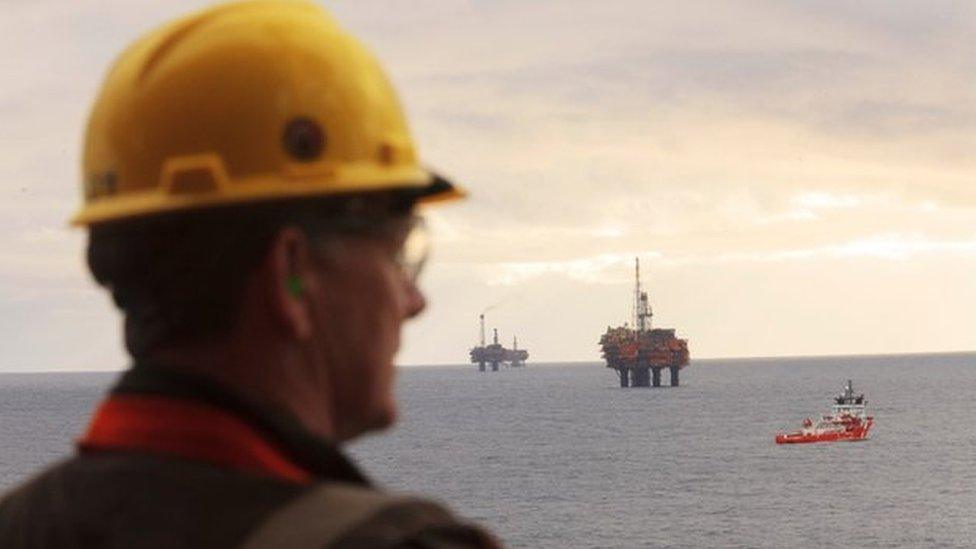
Mr Brown said: "Our support also includes £24.5m for increased innovation and business-support measures and the £12m Transition Training Fund, which offers grants to individuals to support their redeployment through retraining or further education.
"We will also maintain pressure on the Treasury to honour promises made in last March's budget to use the UK Guarantees Scheme for oil and gas infrastructure to help secure new investment in assets of strategic importance.
"The Scottish government strongly believes that the North Sea oil and gas sector can have a bright future for years to come. This, however, will continue to require a concerted effort from all stakeholders."
The increase in production was down to "hard work" and a "massive boost" of investment, according to Oil & Gas UK, which represents producers and contractors in the industry.
Its market and intelligence manager, Adam Davey, said: "While the efficiency drive by industry has helped to reduce the cost of doing business in the region, more needs to be done to ensure the UK Continental Shelf is an attractive investment proposition for those looking to undertake new exploration and develop assets."
Murdo Fraser, the Scottish Conservatives' finance spokesman, said the increase coincided with "significant" tax breaks introduced by the UK government last year.
'Immense pressure'
"We are now seeing that tactic work, as production rose directly after the measures were introduced," he said.
"Of course much more needs to be done, and these breaks ought to continue having a beneficial impact on the North Sea.
"However, with prices remaining low across the globe, it is an industry which remains under immense pressure. Fortunately, the strength of the UK economy is able to absorb this nosedive, meaning public spending can be protected."
Scottish Labour's economy spokeswoman, Jackie Baillie, claimed the Scottish government had "ignored the crisis in the oil and gas industry for months because ot was politically embarrassing for them".
She added: "Rather than brush these problems under the carpet, the SNP needs to confront the reality of these figures.
"The SNP government should commission an urgent review of the measures to protect jobs and skills such as the transition training fund."
- Published13 June 2016
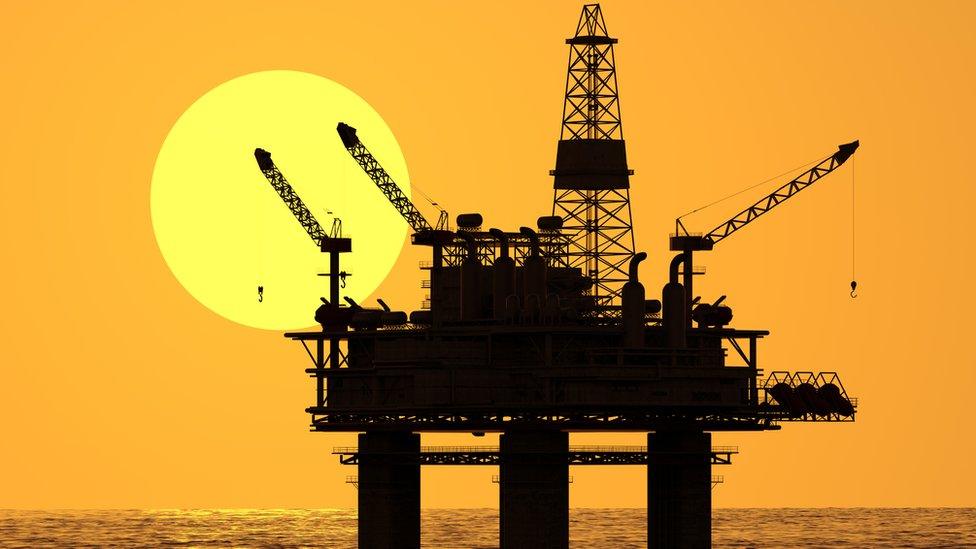
- Published10 June 2016
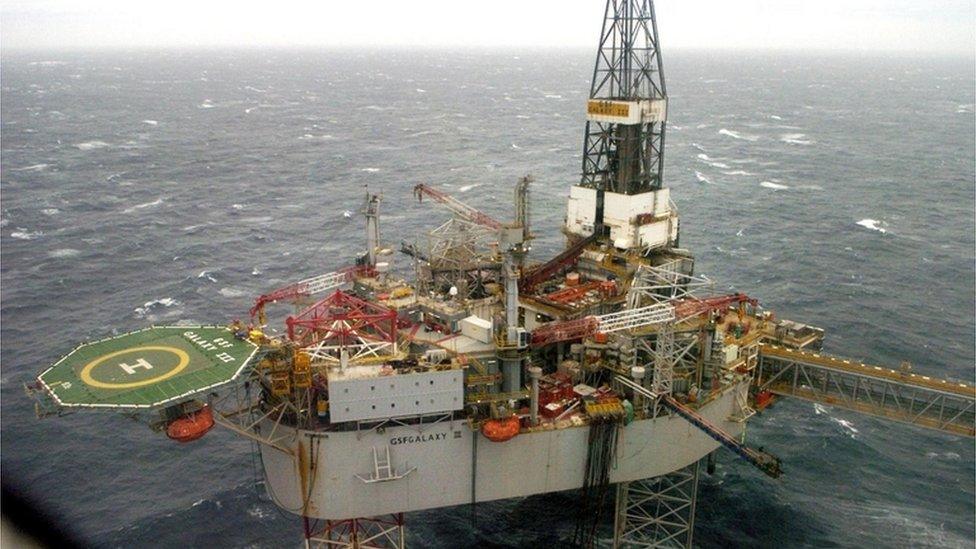
- Published3 June 2016
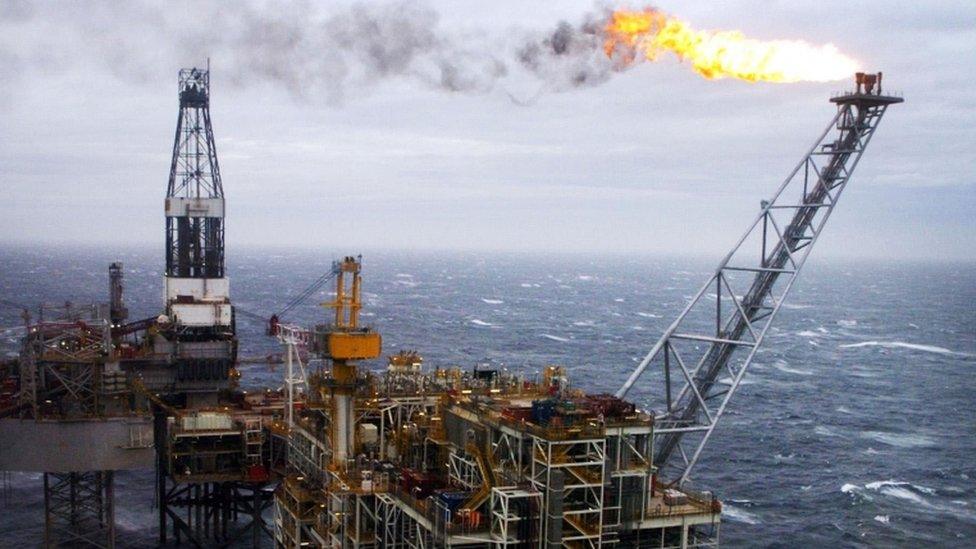
- Published26 May 2016
